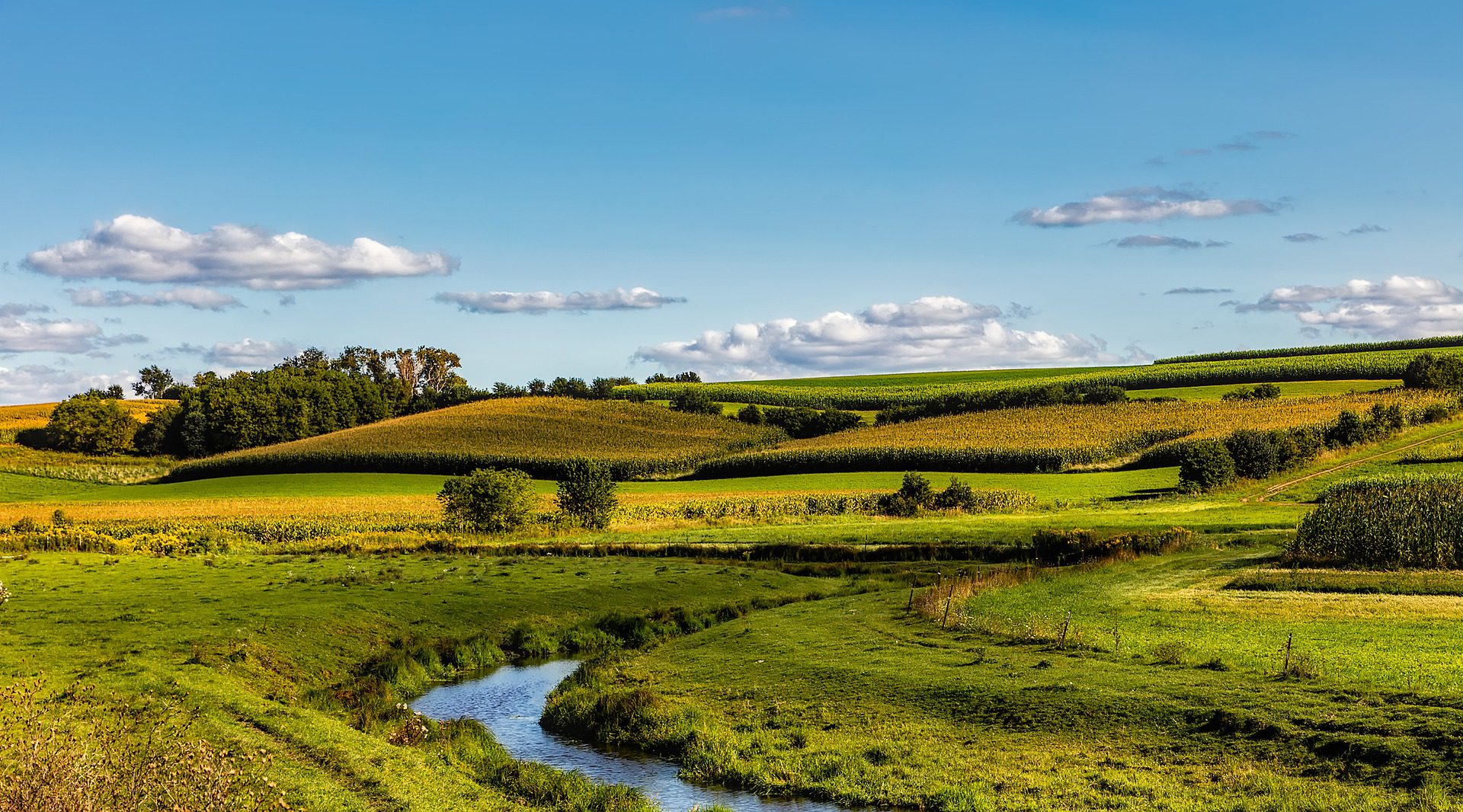Farm Sustainability Rewards Project

Innovating On-farm Conservation Practices
Header image: Contour farming, photo by Jim Klousia
Wisconsin’s Green Fire (WGF), in partnership with Clean Wisconsin, led the Farm Sustainability Rewards (FSR) Project from 2023-2025. Funding for this project came from a cooperative agreement with the USDA Natural Resources Conservation Service. Due to funding disruptions, project work was paused in spring 2025.
The FSR Project worked to design a pilot program, with stakeholder input, aimed at rewarding farms that meet clear farm-wide sustainability performance benchmarks on a voluntary basis. The goal of this project was to identify increasingly protective and quantifiable benchmarks for allowable soil erosion rates, nitrogen and phosphorus losses, and greenhouse gas (GHG) emissions for each tier of performance.

Wisconsin farmers have a long tradition as committed conservationists. Yet, market realities and the current structure of government farm incentive programs too often result in failure to protect water quality in farm country and beyond. As a result, contamination of water supplies (from phosphorus, nitrates, bacteria, etc.) still threatens human health and the environment. These water quality issues effect an increasing number of rural residents in Wisconsin and surrounding regions.
Unlike one-time cost-share programs that focus on isolated practices, the FSR project developed a structure to offer qualifying producers annual per-acre financial reward payments for achieving key environmental goals on a continuing, farm-wide basis. The concept used field-tested models to estimate a farm’s average “footprint per acre” for soil erosion, nutrient loss and GHG emissions based on relevant farm characteristics and practices. Farms that do better in each of these categories (soil erosion, nutrient losses, and GHG emissions) can earn higher rewards.
We believe that more positive outcomes are possible if we reassess investments in farm conservation through voluntary efforts. WGF members have been working for several years on better methods to use our investments that support farmers and farm conservation. With the FSR Project, the time has arrived to move forward with innovative approaches to on-farm conservation. This design provides a model to test these ideas at farm to watershed scale.
With dedicated staff and a larger team of stakeholders, the FSR Project helped develop and refine ideas that envision new ways of supporting farmers while conserving working lands and our state’s most precious resource, clean water.


